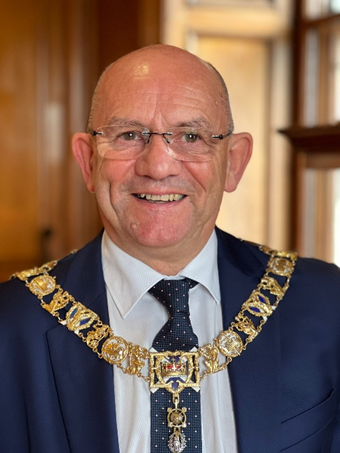Daniel Overbey

Daniel Overbey, AIA, NCARB, LEED Fellow, LEED AP (BD+C, ID+C, O+M), WELL AP, EcoDistricts AP is an Associate Principal and Director of Sustainability for Indiana-based Browning Day and an Assistant Professor of Architecture at Ball State University’s R. Wayne Estopinal College of Architecture and Planning. His work focuses on high-performance and zero net energy/zero net carbon building design and construction, environmental systems research, energy/lifecycle assessment modeling, and resilient design. Daniel has led sustainability efforts on a number of high-profile green building projects including the first ILFI-certified zero net energy building in Indiana, the largest corporate LEED Platinum project in Indiana, and the only dual LEED and SITES certified project in Indiana. Daniel is the current President of the Indiana Chapter of the American Institute of Architect (AIA Indiana) and is a past Chair of the Indiana affiliate of the U.S. Green Building Council (USGBC). Daniel holds a Master of Architecture degree from the University of Nevada, Las Vegas (UNLV).
Rolf Frischknecht

Dr Rolf Frischknecht holds a degree in civil engineering and has been shaping the development of life cycle assessment in Europe and worldwide for more than three decades. His activities range from the comprehensive ecoinvent life cycle assessment (LCA) database, available electronically and online, to the further development of environmental indicators and assessment methods, such as the ecological scarcity method. He heads treeze, a company specialising in life cycle assessment consulting and research, and is managing director of the national platform «life cycle assessment data in construction». Since 2000 he teaches life cycle assessment at ETH Zurich. As a board member of the society of the Swiss LCA discussion forum he regularly organises one day workshops on dedicated LCA related topics such as biogenic carbon modelling and assessment in buildings’ LCA or environmental benchmarks for buildings. In 2020, he was awarded the edana Prize for his life time achievements in LCA. He lives with his family in Uster, Switzerland.
Lone Feifer

Lone Feifer is Director for Sustainable Buildings at the VELUX Group. A board member at the Danish Architects Association, the Copenhagen Architecture Festival and the International Active House Alliance she is an advisory board member for Danish Public Housing development. She is a former Board member at the Royal Danish Academy for Architecture, Design and Conservation, at the Danish Technical University Building Engineering Faculty, on the Danish Design Council, the Danish Architectural Press and vice chair at the Climate KiC Europe. She gained a Masters of Architecture in 1993 from the Copenhagen School of Architecture in Copenhagen and a Postgraduate Masters in Energy & Green Architecture from Aarhus School of Architecture and Tsinghua University 2011.
David Partridge

David Partridge is Chair of the UK’s Net Zero Carbon Buildings Standard Governance Board. He leads a cross-industry partnership of leading built environment organisations who have joined forces to develop the UK’s first standard for identifying and verifying buildings as Net Zero Carbon. He read architecture at Cambridge and is a member of the Royal Institute of British Architects and has served on a number of RIBA practice committees. He is currently Senior Partner of the London based property developer Argent LLP, and now Chairman of the Related Argent Partnership. David is a Trustee of the UKGBC and Landaid and is the immediate Past President of the British Property Federation and a Past President of the British Council for Offices, was one of the founding members and now ex-Chairman of both the Piccadilly Partnership in Manchester and the King’s Cross and St Pancras Business Partnership Ltd and is ex-Chairman of CityCo in Manchester. David was awarded the BCO President’s Award 2022, and in 2019 won the Estates Gazette’s ‘Outstanding Contribution to Property Award’.- as well as numerous other awards including NW Insider Property Personality of the Year (2015), and Property Week Personality of the Year Award (2014).
Paul Dorfman

Paul Dorfman is Visiting Fellow, Science Policy Research Unit (SPRU), Sussex Business School, University of Sussex; Chair, Nuclear Consulting Group (NCG); Member, Irish Govt. Environment Protection Agency (EPA) Radiation Protection Advisory Committee (RPAC); Member, International Nuclear Risk Assessment Group (INRAG); Nuclear Researcher, Greenpeace Environmental Trust. Paul served as Secretary to the UK Govt. scientific advisory Committee Examining Radiation Risks from Internal Emitters (CERRIE); led European Environment Agency (EEA) response to Fukushima; and served as Expert to the European Economic and Social Committee (EESC).
Jonathan Porritt
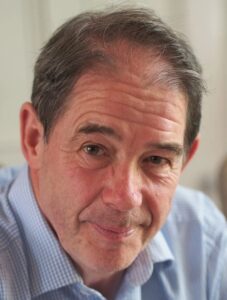
Jonathon Porritt, Co-Founder of Forum for the Future, is a veteran campaigner and eminent writer, broadcaster and commentator on sustainable development. He is Chancellor of Keele University. He was formerly Director of Friends of the Earth (1984-90); co-chair of the Green Party (1980-83) of which he is still a member; a Trustee of WWF-UK (1991-2005) and a member of the Board of the South West Regional Development Agency (1999-2008). He was Chairman of the UK Sustainable Development Commission from 2000 to 2009 after nine years of providing high-level advice to Government Ministers. He is currently involved in the work of many NGOs and charities as Patron, Chair or Special Advisor. His books include Hope in Hell (2020); The World We Made (2013); Living Within Our Means (2009); Globalism & Regionalism (2008) and Capitalism As If The World Matters (2nd Edition 2007).
Dieter Helm

Dieter Helm is Professor of Economic Policy at the University of Oxford and Fellow in Economics at New College, Oxford. He was Independent Chair of the Natural Capital Committee (2012 to 2020) providing advice to the government on the sustainable use of natural capital. Dieter specialises in three key areas: Energy & Climate; Regulation, Utilities & Infrastructure; and Natural Capital & the Environment. He provides extensive expert advice to UK and European governments, regulators and companies across all three areas. He has written many books, most recently Net Zero (September 2020, William Collins) in which he addresses the action we all need to take to tackle the climate emergency. His other books include: Green & Prosperous Land (2019, William Collins), Burn Out: The Endgame for Fossil Fuels (2017), The Carbon Crunch: Revised and Updated (2015) and Natural Capital: Valuing the Planet (2016), all published by Yale University Press. His next book on the sustainable economy will be published later in 2023. Dieter is a Vice President of the Exmoor Society, a Vice President of Berkshire, Buckinghamshire and Oxfordshire Wildlife Trust, and Honorary Fellow, Brasenose College, Oxford.
Mark Z. Jacobson
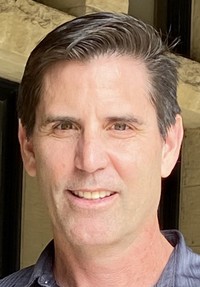
Mark Z. Jacobson is Director of the Atmosphere/Energy Program and Professor of Civil and Environmental Engineering at Stanford University. A Senior Fellow of the Woods Institute for the Environment and of the Precourt Institute for Energy, he got a B.S. in Civil Engineering, an A.B. in Economics, and M.S. in Environmental Engineering from Stanford in 1988 and a M.S. and PhD in Atmospheric Sciences in 1991 and 1994 from UCLA, joining the faculty at Stanford in 1994. He works to better understand pollution, global warming problems and developing large-scale clean, renewable energy solutions to them. He has published six textbooks and 180 peer-reviewed journal papers. His multiple National and International Awards include being selected in 2019 and 2022 as one of the world’s 100 most influential people in climate policy” by Apolitical and in 2022, he received the Visionary Clean Tech Influencer of the Year award at the World Clean Tech Awards. He served on an advisory committee to the U.S. Secretary of Energy. His work is the scientific basis of the energy portion of the U.S. Green New Deal and related 100% Renewable Energy laws in cities, states and countries around the world.
Stuart Haszeldine

Stuart Haszeldine at the University of Edinburgh became the world’s first Professor of carbon capture and storage in 2006. He led the first evaluations of CO2 storage around the UK, which enabled UK Government to understand the interconnected value of CO2 capture, transport, and commercialised permanent storage. He has also pioneered evaluations of inter-seasonal hydrogen storage, radioactive waste disposal, fracking, bioenergy, and biochar. He is currently comparing the permanence and pricing of different nature-based or geology-based storage methods for Negative Emission Technologies. Haszeldine advocates that CO2 storage should be explicitly paid, delivered by a Carbon TakeBack Obligation, which will enable CO2 markets to grow 10-100x faster towards Net Zero in mid century. A similar mandate is proposed in the EU Net Zero Industry Act (March 2023. Haszeldine was appointed OBE in 2012 and has several medals from the Geological Society.
Ian Marius Peters

Ian Marius Peters holds a Ph.D. in physics from the Albert Ludwigs University of Freiburg, Germany. He has worked on PV research for more than 18 years and has published more than 250 papers in journals and on scientific conferences. His areas of expertise include fundamentals of photovoltaics, development of solar power systems, solar cell cost modelling and device modelling. He has worked as a researcher and project manager at the Fraunhofer Institute for Solar Energy Systems (ISE) in Freiburg as a group leader in the Solar Energy Research Institute of Singapore (SERIS), a research scientist and head of the systems on silicon team in the PV research laboratory at MIT. He currently heads the group High Throughput Characterization and Modelling at the Helmholtz Institute Erlangen Nuremberg for Renewable Energy (HI-ERN). He has managed various publicly funded and industry funded research projects, many of which had international teams and has taught courses at NUS and MIT.
Peter Strachan

Professor Peter Strachan has worked at the Robert Gordon University for nearly 30 years. His research interests cover the theoretical and public policy aspects of energy and sustainability transitions. In supporting this work, he has received funding from the United Kingdom (UK) Economic and Social Research Council (ESRC) and Innovate UK. His published work focuses on sub-national government and pathways to sustainable energy, corporate and community ownership models, and the performance of UK offshore windfarms. Professor Strachan’s published outputs have appeared in prestigious peer reviewed journals such as Applied Energy, Energy Policy, Energy Research and Social Science, Environment and Planning C, and Regional Studies. Passionate about research and in training the next generation of researchers, he has supervised to completion more than twenty doctoral students. Finally, Professor Strachan is a regular contributor to the Aberdeen Business School MBA and MSc Energy Management Programmes.
John Forster

John Forster is Chair of the Forster Group he founded over 30 years ago, one of Scotland’s leading companies, supplying integrated solar and roofing solutions and services to house builders, the public sector, social housing landlords, farmers, manufacturers and warehouse operators. John was Founding Chair of Solar Energy Scotland, an active member of a range of construction industry bodies and he continues to promote innovation in renewable energy applications, in particular solar applications in building the new energy-efficient homes he sees as essential to reducing the impacts of the built environment. The Forster Group was a key partner in the flagship UKRI-funded Advanced Industrialised Methods for the Construction of Homes (AIMCH) project, and John continues to be a strong advocate of the benefits of Advanced Modern Methods of Construction (AMMC) which were the focus of that project. John also championed the Scottish Foundation Apprenticeships systems and helped found the Construction Scotland Innovation Centre, now BE-ST (Built Environment Smart Transformation), chairing its Governance Board from 2018-2021.
Prashant Kapoor
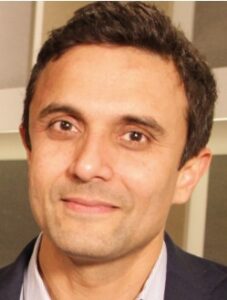
Prashant Kapoor is an internationally recognized thought leader and expert in bioclimatic design and advocate of solutions that align the interests of developers, financial institutions, governments and homeowners to create more sustainable cities. He created EDGE (“Excellence in Design for Greater Efficiencies”), a universal standard, software application and certification system to mainstream resource-efficient buildings in nearly 140 countries and has played a critical role in developing national green building codes around the world. Prashant is currently leading the APEX Green Cities Program supporting cities transitioning to low-carbon and resource-efficient growth pathways, using the APEX online app that allows cities to map out different action plans and evaluate their cost, feasibility, and carbon impacts. Under his leadership, IFC has created a green buildings portfolio that totals more than $6 billion. Previously he worked as a director at WSP consultants in London where he led the engineering planning of Masdar City including developing a green building regulatory system for the city. He also oversaw other sustainable master-planning projects such as Ford Eco-town, a zero-carbon development called Graylingwell, in San Francisco and evaluated policy options for Cixi City in China for its transition to a low climate risk economy. He established the VIOLA Sustainable Cities League table to benchmark the sustainability performance of European cities. He holds architecture degrees from Manipal Institute of Technology (India) and a Master’s degree in energy-efficient building from Oxford Brooks University (UK).
Jimmy Jia

Jimmi Jia is Senior Advisor to Earth Finance, helping to deliver corporate strategy and investing solutions to help entities achieve financial and net zero objectives. He works with executive teams to define, align, and execute long-term environmental and investment strategies to de-risk climate exposures and increase impact. Jimmy sits on the board of San Diego-based Center for Sustainable Energy and Seattle-based Cleantech alliance, where he has held roles in finance, strategy, and CEO search committees. His two books have been sold in over 29 countries. He is a Visiting Scholar at the Energy and Environmental Management Institute at George Washington University and a Research Associate at Oxford Net Zero and the Oxford Sustainable Finance Group, University of Oxford. He received his BS and MS in Material Science and Engineering from the Massachusetts Institute of Technology and an MBA from the University of Oxford.
Robert J. Koester
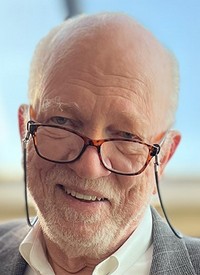
Robert J. Koester, AIA LEED AP, is a Professor of Architecture at Ball State University where is he is the Founding Director of the Academy for Sustainability (2020), the Center for Energy Research/Education/Service (1982), the Ball State University Council on the Environment (COTE) and the BSU Greening of the Campus Conference Series (started 1992). He was the Founding Liaison (2006) to the American College and University Presidents Climate Commitment (ACUPCC) and currently serves as Liaison to their Climate Leadership Commitment, while continuing as the Charter Liaison to their Sustainability Tracking Assessment and Rating System (STARS). He will share his university experiences to talk about Leveraging the Voluntary Carbon Market To Invest in Deeper Carbon Reduction.
Patrick Harvie

Patrick Harvie was appointed Scottish Minister for Zero Carbon Buildings, Active Travel and Tenants’ Rights in August 2021. He spent his childhood in Dumbarton, and attended Dumbarton Academy followed by Manchester Metropolitan University. Before becoming an MSP he worked for a sexual health charity as an LGBT youth worker in Glasgow, and was involved in the campaign to repeal Section 28 during the Scottish Parliament’s first session. Patrick was elected as an MSP for the Glasgow region in 2003, has served as Convenor of the Transport, Infrastructure and Climate Change Committee during session 3, and as Co-Leader or Co-Convenor of the Scottish Green Party since 2008.
Rahman Azari

Rahman Azari is an associate professor of architecture at the Pennsylvania State University’s Department of Architecture and a member with the Penn State Institutes of Energy and the Environment (IEE). He leads the Resource and Energy Efficiency (RE2) Lab at Penn State, building on his work on resilient built environments at the scales of materials, buildings, and cities, funded by the U.S. Department of Energy (DOE), the American Institute of Architects (AIA), and private agencies. He is an award winning researcher and teacher and his most recent work include the forthcoming co-edited book, The Routledge Handbook on Embodied Carbon in the Built Environments; an edited collection of contributions from the scholars in the field of building embodied carbon that were presented in the 2022 conference he co-hosted on the subject – https://embodied-carbon.org/about/.
Ulrike Passe

Ulrike Passe is a Professor of Architecture at Iowa State University (ISU), USA and a licensed architect in Germany. She teaches sustainable design and environmental technologies and is director to the Center for Building Energy Research (CBER). She leads the interdisciplinary ISU Sustainable Cities team integrating human-building-microclimate interactions into urban energy models for resilience. In 2015 she published “Designing Spaces for Natural Ventilation: an Architect’s Guide (Routledge) with Dr. Francine Battaglia; and in 2009 led the ISU team to design and build the Interlock House for the US DOE Solar Decathlon, now transformed into an NSF funded community research lab. She is a former president of the Society for Building Science Educators (SBSE) and current US representative on the Passive Low Energy Architecture (PLEA) Board, and has been recently working on accounting for integrating GHG Metrics for natural ventilation into Net Zero methodologies.
Camilla Thomson

Camilla Thomson is Chancellor’s Fellow in Energy in the School of Engineering at the University of Edinburgh researching the environmental impacts of energy. She currently focusses on developing better tools and techniques to analyse the climate impact or carbon footprint of changes to electricity systems: whether new renewable developments, transmission lines or market models. The basis of this lies in an understanding of energy technologies and resources, with specific techniques including Life Cycle Assessment (LCA), marginal carbon analysis and renewable resource assessment. Camilla has recently worked on the EnergyREV project and the NEWEST-CCUS project, leading an international team on robustly quantifying the carbon-reduction-potential of waste-to-energy plants with carbon capture and storage. Her ongoing research explores the spatio-temporal effects of marine energy and energy storage technologies on system-wide carbon emissions.
Vanessa Gomes
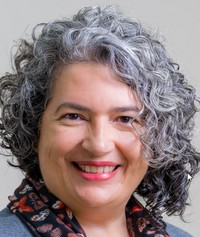
Vanessa Gomes is an Associate Professor of Architecture & Urbanism, at the University of Campinas (UNICAMP), Brazil. Her research interests focus on architecture, sustainable design, and sustainable building. She studied architecture and urban planning at the Faculdade de Arquitetura e Urbanismo da Universidade Federal do Espírito Santo – UFES (1993), a Master of civil engineering (1998) and PhD in civil engineering at Escola Polite?cnica, Universidad de São Paulo (2003). She acts as the regional coordinator of for the Americas for the CIB W116 Smart and Sustainable Built Environments, a CIB working commission which aims to promote international research, application and education in the field of integrated development of smart and sustainable built environments.
Eliza Hotchkiss

Eliza Hotchkiss is a senior resilience analyst and technical group manager leading the Resilient Systems Design and Engineering Group within NREL’s Energy Security and Resilience Center. Her areas of expertise include disaster recovery leadership and technical assistance, resilience, and international sustainable development. Her focus is on analysis and outreach to increase deployment of resilient technologies and best practices within infrastructure systems and operations. As co-principal investigator on a Laboratory Directed Research and Development project related to the value of resilience, she has led and published research on metrics for resilience, valuation, and monetization of resilience solutions. She leads resilience assessments for federal, state, local, and tribal governments and provides technical assistance for international resilience and sustainable development.
Keith Baker

Keith Baker is a Research Fellow in Fuel Poverty and Energy Policy at Glasgow Caledonian University; a Co-founder of ICARB; a Co-founder of The Energy Poverty Research initiative; and a member of the Board of Directors and Convenor of the Energy Working Group at the Scottish ‘think and do’ tank, Common Weal. Following the completion of his PhD in Domestic Energy Consumption in 2007 he moved to Edinburgh to take up a joint post as a carbon and sustainability consultant at SISTech Ltd and a Knowledge Management Researcher at Heriot-Watt University, before joining GCU in 2010. His research interests span energy and the built environment, with a particular focus on the use of natural and sustainable building materials to address fuel poverty, socio-economic deprivation, and create jobs in rural and island areas of Scotland. He is also co-editor of the books ‘A Critical Review of Scottish Renewable and Low Carbon Energy Policy’ and ‘The Palgrave Handbook of Managing Fossil Fuels and Energy Transitions’ (Palgrave Macmillan, 2017 & 2019).
Alice Moncaster

Alice Moncaster’s research focuses on improving the sustainability and resilience to climate change of the built environment. Her work on embodied carbon has led to major changes across the construction sector, and emerging policy initiatives. She collaborates with the foremost global experts in the field as the UK expert on successive International Energy Agency projects, creating new understanding and influencing national and international policy. In the UK she works closely with industry colleagues, for example as the academic PI on the team developing the RICS 2017 professional statement on whole life carbon, and currently as part of the author group for the UK Net Zero Carbon Buildings Standard. Dr Moncaster has authored over 100 peer-reviewed articles with multiple colleagues, as well as editing books and journal special issues. Senior academic posts have included Sustainability Lead for the Open Societal Challenges research across the Open University, and Director of the Interdisciplinary Design for the Built Environment (IDBE) at the University of Cambridge. Alice will be joining the University of the West of England in summer 2023 as Professor of Sustainable Construction.
Deirdre van Gameren

Deirdre van Gameren is the Sustainability Project Manager for TU Delft. Involved from the inception of the university’s sustainable ambitions she is now working on its implementation. By 2030, The executive board of TU Delft has ratified a plan to make all activities on and from the campus to be CO2-eq neutral, circular and climate-adaptive and to contribute to the quality of life for its users and nature, with 100 million euros allocated by the University to achieve this. She works closely together with all faculties, researchers and services teams to implement sustainability at the core of their activities. For her master’s degree in Building Technology her thesis was titled “The roadmap towards circular cruise ships”, and she was also then part of the MOR student team, gaining 2nd overall position in the International sustainable building competition, the Solar Decathlon.
Timothee de Toldi

Timothee de TOLDI holds degrees in Architecture and Civil Engineering (B.Sc.Arch, M.Arch, M.Sc. Civil Engineering) and has led research in the climate-engineering-sustainability nexus, with special emphases on informing sustainable building design through geospatial analytics, LCA numerical uncertainty assessments, and material and carbon flow analyses. Presently, he assumes the role of Senior Environmental Performance Strategist within the Engineering Department of Bouygues Immobilier SAS, a real estate development firm headquartered in Paris. His current work centers on the development of industrial ecology roadmaps that aim to align construction practices across the entire value chain with emergent challenges, including the need to (i) create long-lasting habitats in anticipation of a decrease in construction rates due to future fossil fuel scarcity, while simultaneously securing housing for future generations; (ii) passively ensure safe and secure indoor environments in the face of escalating heatwaves, pandemic threats, and potential energy insecurity; and (iii) minimize the embodied environmental impacts of construction while achieving challenges (i) and (ii).
Romina Rissetto

Romina Rissetto is a researcher and lecturer at the Faculty of Architecture, Karlsruhe Institute of Technology (KIT) in Germany. Teaching building physics and technical building services she runs seminars on building simulation tools to support the design decision process, with expertise in thermal comfort assessment and building modeling. Since 2020 Romina has been leading the research project ‘Deck-in-Vent’ focusing on the development and implementation of personal ceiling fans to support passive cooling strategies in an office building retrofit in Germany. Her ongoing research explores the impact of occupant expectations on thermal comfort and satisfaction, and the use of personal comfort devices in non-residential buildings. She studied architecture at the Universidad de Buenos Aires, has a Master of Building Science Technology at the TU Vienna and is finishing her PhD at KIT in Germany. She is an active participant in the IEA EBC Annex 79 on ‘Occupant-Centric Building Design and Operation’, and was in 2022 a guest scientist at the Energy Institute, University College London.

